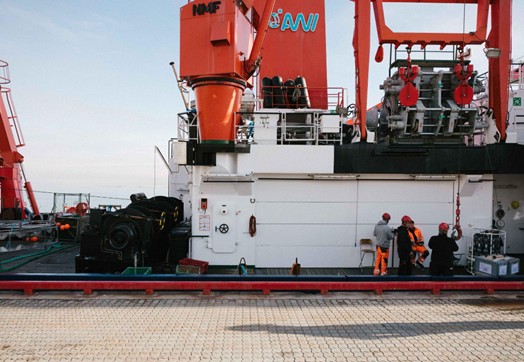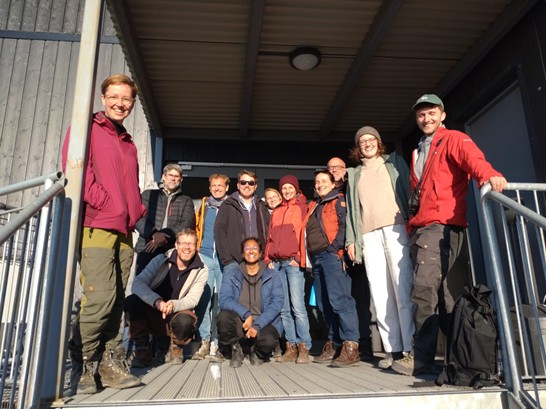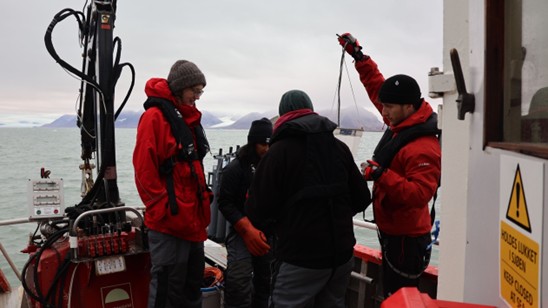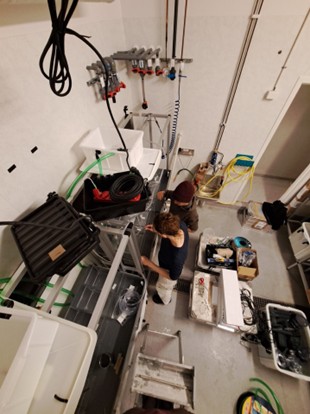Photo: Allison Bailey
Start of year-round ecosystem sampling in Kongsfjorden
Written by: Dr. Clara Hoppe, AWI
Adapted to the webpage: Ingrid Kjerstad, NPI
16.10.2024
At the beginning of this August, a long-planned research initiative has started its work in Ny-Ålesund Research Station: The International Kongsfjorden Year (IKY). Developed by the Kongsfjorden System Flagship, this initiative aims at studying the Kongsfjorden ecosystem and its sensitivity to climate change over the full annual cycle.

Weekly sampling in Kongsfjorden
The backbone of the year will be sampling every week mid fjord at the reference station called Kb3. This sampling is carried out by the project YESSS – Year-round EcoSystem Study on Svalbard: Seasonally resolving ecosystem functioning in a warming Arctic, led by the Alfred Wegener Institute (AWI) together with several German universities and institutes (see www.yesss.science for more info).

The weekly sampling at Kb3 will also include microbial (prokaryotic) measurements carried out by scientists at India’s NCPOR and Lehigh University in the US. The Norwegian Polar Institute will contribute seasonal transects along the fjord axis, and collect samples for several international partner institutions.

Experiments are done in the Marine Laboratory
In the first two weeks of August, a group of 12 scientists from the YESSS team has stayed at AWIPEV in Ny-Ålesund and set up all their equipment and trained the methods to be done consistently over the next complete year. The Kings Bay Marine Laboratory is now equipped with aquariums and basins simulating projected climate changes.
“In parallel experiments with the current water temperature and water that is three and six degrees warmer, we’re investigating how marine organisms react to the higher temperatures. Rising temperatures are a stress factor and can lead to higher resource consumption – with consequences for the entire ecosystem”.
– Principal investigatior, biologist Dr Clara Hoppe at AWI
These experiments on temperature sensitivity will be conducted for key groups in the food web: for phytoplankton, microscopically small single-celled organisms that form the basis of the web; and for macroalgae (e.g. seaweed), molluscs (e.g. mussels), echinoderms (e.g. sea urchins) and fish (e.g. Arctic cod).

The setup and the initial measurements for YESSS are now complete. Two PhD candidates remain in Ny-Ålesund, collecting samples and preparing analyses on a weekly basis. Every six weeks, the four students will swap their roles, thereby covering the full annual cycle.
Read more about the Kongsfjorden System Flagship and check out the CTD portal that the flaship has delevoped, below:
Did you find what you were looking for?